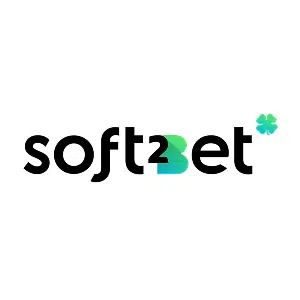September reminded us that iGaming is never short on surprises – one minute it’s legal battles, the next it’s billion-dollar projects and leadership exits.
Another month, another round of headlines that prove iGaming never sits still. Let’s look at this month’s stories and the signals they send for iGaming’s future.
And remember, we don’t gossip – we just listen carefully and forward responsibly.
Sweden to revise iGaming law from January 2027
Sweden is preparing for a sweeping overhaul of its Gambling Act, which will officially take effect in January 2027.
The revision is designed to tighten consumer protection, giving regulators stronger powers to monitor the market and step up enforcement. Licensed operators will benefit from a clearer framework with fewer grey areas, while unlicensed platforms are expected to face far stricter restrictions. The reform also seeks to align Sweden’s gambling rules with evolving European standards, addressing new forms of digital betting and casino play.
This long-term roadmap highlights Sweden’s commitment to building a safer, more transparent, and sustainable gambling ecosystem, while ensuring players can trust regulated brands.
Sweden moves to criminalise unlicensed operators
A Swedish government inquiry has recommended a major shift in enforcement by replacing the current “directional criterion” with a “participant criterion.”
If this proposal is adopted, operators that accept Swedish players without a licence would be criminally liable, regardless of whether they actively target the market in Swedish or use local payment methods. This closes one of the most exploited loopholes in Swedish law, where offshore companies could technically argue they were not “marketing” to Swedish players while still profiting from them.
Japan makes first arrest of SEO operators promoting offshore iGaming
Japanese authorities have carried out a landmark arrest, targeting SEO website operators accused of promoting offshore iGaming platforms.
This is the first case of its kind, where not only the illegal operators but also their digital promoters have been prosecuted. The decision signals a strong intent by Japan to disrupt the marketing ecosystem that funnels players to unlicensed platforms. Regulators argue that without these SEO and affiliate networks, offshore operators would struggle to attract large player bases.
By criminalising SEO promotion, Japan is sending a clear warning to affiliates, marketers, and digital agencies: compliance obligations apply across the entire funnel. This move could inspire other regulators worldwide to take a harder stance on marketing practices linked to illegal gambling.
MGM Empire City advances in New York casino licence process
MGM’s Empire City Casino in Yonkers has taken a major step forward in the New York downstate casino race.
The property received unanimous approval from its Community Advisory Committee, clearing a significant hurdle in the path toward securing a full casino licence. The proposal will now be reviewed by the Gaming Facility Location Board, which will evaluate its potential impact on revenue, competition, and community development.
If approved, Empire City could become one of the largest casinos in the U.S., serving millions of residents across the New York metropolitan area. With billions in revenue at stake, this milestone gives MGM a strong position in the race, though rivals remain firmly in contention.
Richard Desmond case pushes UKGC spending up by £14.4m
The UK Gambling Commission (UKGC) has reported a sharp rise in costs, with annual spending up by £14.4 million.
The increase stems largely from litigation with Richard Desmond, who is suing over the National Lottery licence tender awarded to Allwyn. Legal expenses ballooned from just £400,000 last year to over £13 million, straining the regulator’s budget.
With additional cases involving Camelot and IGT still ongoing, the UKGC is under pressure both financially and politically, raising questions about its ability to juggle enforcement, supervision, and litigation.
KSA Fines unibet €450,000 for repeated illegal sports bets
The Dutch gambling authority Kansspelautoriteit (KSA) has fined Unibet €450,000 for repeatedly offering illegal sports bets to Dutch customers.
The regulator found that Unibet failed to implement adequate measures to prevent unlicensed access, despite previous warnings. This penalty highlights the strict enforcement culture in the Netherlands, where regulators are determined to protect consumers and maintain integrity in the newly regulated market.
For operators, the fine is a reminder that compliance is not optional – repeated violations will result in hefty financial consequences and reputational damage.
Former Entain executives charged in Turkey gambling probe
Several former Entain executives have been formally charged in a long-running Turkish investigation into illegal gambling operations.
The case relates to activities that date back several years, underscoring how historic compliance failures can resurface long after companies have exited markets. Entain has previously acknowledged the investigation and stressed its ongoing cooperation with authorities.
The development puts renewed focus on corporate governance and accountability, showing how executive decision-making from years ago can still impact companies, reputations, and careers today.
Ezugi appoints Gilad Ben-Ami as new CEO
Ezugi, a specialist in live dealer solutions, has appointed Gilad Ben-Ami as its new CEO.
Ben-Ami brings a wealth of experience in the iGaming industry and is expected to spearhead Ezugi’s global expansion plans, particularly in emerging markets where live dealer products are growing rapidly. The company has hinted at upcoming investments in localized studios and innovative formats, seeking to capture a bigger share of the competitive live casino segment.
His leadership marks a new chapter for Ezugi, which has steadily built its reputation as a trusted provider since being acquired by Evolution.
AvatarUX appoints Andrew Foster as CEO
Slot studio AvatarUX has named Andrew Foster as its new CEO, signaling a new era of leadership.
Foster, who previously held senior positions in product and commercial roles, will focus on driving innovation in mechanic-driven slots, one of AvatarUX’s biggest strengths. He is also expected to expand the company’s global partnerships and push further into regulated markets.
The appointment is widely seen as a strategic move to solidify AvatarUX’s brand as a leader in next-generation slot mechanics, building on the success of its signature PopWins series.
Brandon Cohen leaves Better Collective’s Action Network
Brandon Cohen has left his role at Better Collective’s Action Network, marking another senior exit in the U.S. affiliate and sports media scene.
Cohen played a key role in the network’s development as Better Collective expanded its U.S. presence. His departure comes at a time when the company is adapting its strategy to a more competitive and regulated sports betting media environment.
Federico Grinberg steps down as Better Collective VP of Global Sports Media
Federico Grinberg has announced his resignation as VP of Global Sports Media at Better Collective, closing a career chapter that spans more than two decades.
Grinberg co-founded Futbol Sites in 2009, later serving as CEO before its acquisition by Playmaker Capital, where he became EVP. After Better Collective acquired Playmaker in 2024, he transitioned into his VP role, overseeing global sports media operations.
His departure signals the end of a long leadership journey through some of the most significant media consolidations in the industry, and raises questions about what’s next for Better Collective’s media strategy in a highly competitive landscape.
Thinking Out Loud…
September felt like a turning point. Everywhere you look, regulators are getting bolder – Sweden planning ahead, Japan making arrests, and Europe handing out fines without hesitation. The era of “grey zones” is fading, and the pressure to play by the book has never been stronger.
At the same time, the leadership shuffle shows how restless the industry is. New CEOs are stepping in with big visions, while long-time names are quietly stepping aside. It almost feels like a reset button is being pressed – new rules, new faces, same race for growth.
The trend is clear: the industry is entering a phase of tighter rules and sharper leadership, where adaptability and accountability will decide who thrives and who struggles.
The views expressed in this article represent the author’s personal observations and interpretations of recent events. They are not intended to influence or impose any particular perspective. Readers are encouraged to assess the information independently and form their own opinions.

















